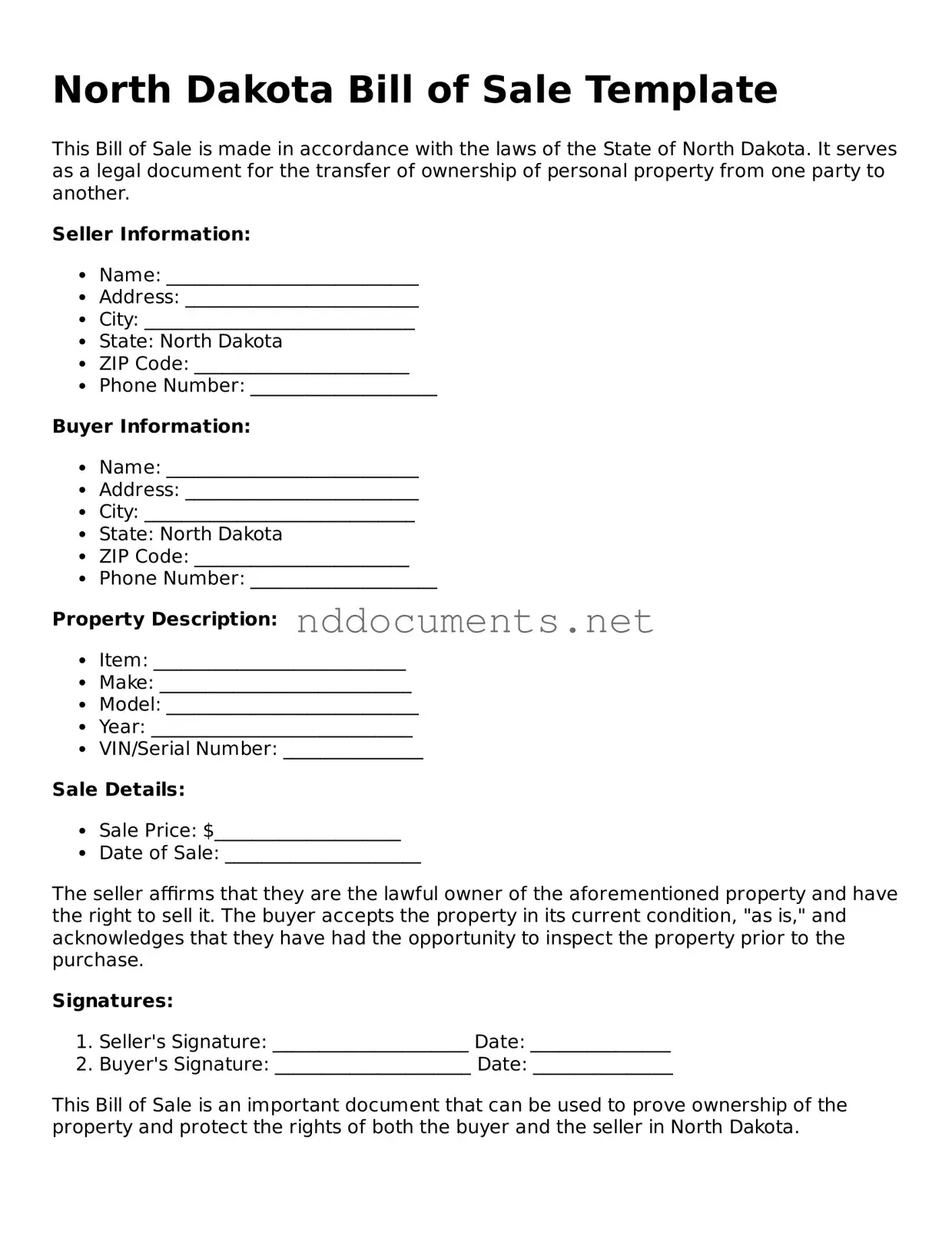Fillable Bill of Sale Document for North Dakota
The North Dakota Bill of Sale is a legal document used to transfer ownership of personal property from one individual to another. This form provides essential details about the transaction, including the buyer, seller, and a description of the item being sold. Understanding its importance can help ensure a smooth transfer and protect both parties involved.
Make Your Document Online

Fillable Bill of Sale Document for North Dakota
Make Your Document Online

Make Your Document Online
or
➤ Bill of Sale
Don’t walk away from an unfinished form
Finish Bill of Sale online quickly from start to download.